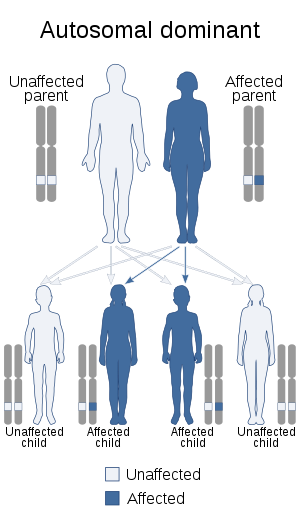Familial hypertriglyceridemia
Familial hypertriglyceridemia is an autosomal dominant condition occurring in approximately 1% of the population.[1] Triglyceride levels, but not cholesterol, are elevated as a result of excess hepatic production of VLDL or heterozygous LPL deficiency. The condition is associated with premature coronary disease, though treatment sometimes differs from hypercholesterolemia. Affected individuals are at risk for chylomicronemia syndrome, characterized by elevated chylomicrons in the blood. They are also at risk of pancreatitis, especially when triglyceride levels exceed 1000mg/dL.
| Familial hypertriglyceridemia | |
|---|---|
 | |
| Familial hypertriglyceridemia is inherited in autosomal dominant manner |
See also
- Primary hyperlipoproteinemia
- Familial apoprotein CII deficiency
- Skin lesion
References
This article is issued from Wikipedia. The text is licensed under Creative Commons - Attribution - Sharealike. Additional terms may apply for the media files.